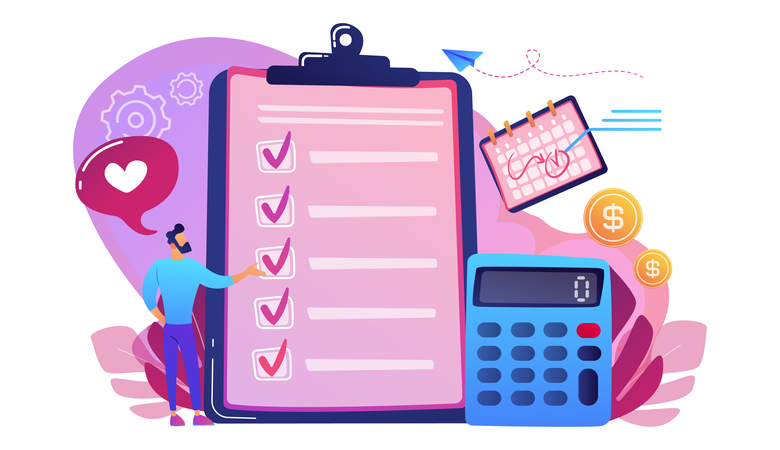Introduction to Budgeting
Budgeting is one of the most powerful tools in personal finance, serving as the foundation for financial stability and goal achievement. At its core, budgeting is about making a plan for how you will spend and save your money. This process involves tracking your income, identifying expenses, and setting aside funds for both immediate needs and future goals. While it might seem like a tedious task, effective budgeting is key to achieving financial freedom and security.
Benefits of Budgeting
Creating and sticking to a budget offers numerous benefits that can significantly impact your financial well-being:
- Improved Financial Stability and Control: A budget helps you control your spending and ensure that your income is being used efficiently. This stability can reduce financial stress and provide a clear path toward achieving your goals.
- Reduction of Debt and Unnecessary Expenses: By outlining all your expenses, a budget can help you identify and cut out unnecessary spending. This can free up funds to pay off existing debts faster, helping you save on interest payments.
- Achievement of Savings and Investment Goals: Whether you’re saving for an emergency fund, a vacation, or your retirement, a budget ensures that you’re consistently setting aside money to reach these goals.
Types of Budgets
There are several budgeting methods, each tailored to different financial situations and personal preferences. Here are some of the most common:
- Zero-Based Budgeting: This approach involves allocating every dollar of income to expenses, savings, or investments, so your income minus expenses equals zero. It’s highly detailed and forces you to account for every penny, ensuring no money is wasted.
- Envelope System: This traditional method involves dividing cash into envelopes labeled for specific expenses (e.g., groceries, entertainment). Once an envelope is empty, you can’t spend any more in that category until the next budgeting period.
- 50/30/20 Rule: A simpler approach, this rule divides your income into three categories: 50% for needs, 30% for wants, and 20% for savings or debt repayment. It’s a flexible option that’s easy to maintain and adjust.
Setting Financial Goals
Budgeting is most effective when tied to specific financial goals. Here’s how to set and prioritize your short-term and long-term objectives:
- Identifying Short-Term Goals: Short-term financial goals are those you aim to achieve within the next one to three years. Examples include building an emergency fund, paying off credit card debt, or saving for a vacation. These goals should be specific, measurable, and realistic.
- Identifying Long-Term Goals: Long-term goals are those that extend beyond three years, such as buying a home, saving for your child’s education, or preparing for retirement. These goals require more planning and a strategic approach, as they often involve larger sums of money and a longer timeframe.
Steps to Create an Effective Budget
Creating a budget doesn’t have to be complicated. Follow these steps to set up a budget that works for you:
- Track Income and Expenses: Start by listing all sources of income, including your salary, freelance work, or passive income. Next, track your expenses, categorizing them into fixed (rent, utilities) and variable (entertainment, dining out) costs.
- Categorize Expenses: Group your expenses into categories like housing, transportation, food, entertainment, and savings. This will help you see where your money is going and identify areas where you can cut back.
- Allocate Funds to Goals: After covering your necessary expenses, allocate funds towards your financial goals. Even small, regular contributions can add up over time, helping you make progress towards both short-term and long-term objectives.
Tools and Resources for Budgeting
In today’s digital age, numerous tools can simplify the budgeting process:
- Budgeting Apps and Software: Apps like Mint, YNAB (You Need a Budget), and EveryDollar offer user-friendly interfaces that track spending, categorize expenses, and provide insights into your financial habits.
- Using Financial Advisors and Coaches: If you need personalized guidance, consider consulting a financial advisor or coach. They can provide tailored advice, help you set realistic goals, and keep you accountable.
Common Budgeting Mistakes to Avoid
While budgeting is straightforward, there are common pitfalls that can derail your progress:
- Not Tracking All Expenses: Failing to account for all expenses, especially small or irregular ones, can throw your budget off balance. Ensure you’re tracking everything, even minor purchases like coffee or snacks.
- Setting Unrealistic Goals: It’s important to set achievable goals. Overestimating your ability to save or underestimating your expenses can lead to frustration and abandonment of the budget.
- Ignoring Irregular Expenses: Expenses like car repairs, medical bills, or annual subscriptions can disrupt your budget if not planned for. Include a category for irregular expenses and set aside a small amount each month.
Adjusting Your Budget Over Time
Budgets are not static; they should evolve with your financial situation:
- Adapting to Life Changes: Major life events like a job loss, marriage, the birth of a child, or retirement can significantly impact your finances. Be prepared to adjust your budget to accommodate these changes.
- Reassessing Goals and Adjusting Categories: Regularly review your budget to ensure it aligns with your current financial goals. Adjust categories as necessary to better reflect your priorities and spending patterns.
The Role of Budgeting in Financial Planning
Budgeting is a critical component of broader financial planning:
- Integration with Broader Financial Plans: A budget works hand-in-hand with your overall financial plan, providing the structure needed to manage day-to-day finances while working towards larger financial goals like homeownership or retirement.
- Coordination with Investments and Savings: By allocating funds towards savings and investments, your budget can help you grow your wealth and achieve long-term security. Regular contributions, even small ones, can have a significant impact over time.
Overcoming Budgeting Challenges
Budgeting can be challenging, especially in unpredictable circumstances:
- Dealing with Irregular Income: If your income varies from month to month, create a base budget that covers essential expenses and adjust it based on your income fluctuations. Prioritize building an emergency fund to cover lean months.
- Staying Motivated and Disciplined: Budgeting requires discipline, and it’s easy to fall off track. Set reminders, review your goals regularly, and reward yourself for sticking to your budget to maintain motivation.
The Psychological Impact of Budgeting
Budgeting isn’t just about numbers; it also affects your mindset:
- Reducing Financial Stress: Knowing exactly where your money is going and having a plan can significantly reduce financial anxiety. This control can lead to greater peace of mind and a healthier relationship with money.
- Increasing Confidence in Financial Decisions: A clear budget allows you to make informed financial decisions without second-guessing. This confidence can help you navigate major purchases, investments, and other financial commitments.
Case Studies: Successful Budgeters
Real-life examples can provide inspiration and practical tips:
- Real-Life Examples of Individuals and Families: Stories of people who have successfully used budgeting to pay off debt, save for major purchases, or achieve financial independence can motivate you to take charge of your finances.
The Future of Budgeting
Budgeting continues to evolve with technological advancements:
- Digital Transformation and AI-Driven Financial Planning: With the rise of AI and machine learning, budgeting tools are becoming more personalized and predictive, offering tailored recommendations based on spending habits and financial goals.
Conclusion
Budgeting is a powerful tool that can transform your financial life, providing clarity, control, and direction. By setting clear goals, tracking your progress, and adjusting as needed, you can achieve both your short-term and long-term financial aspirations. Start budgeting today, and take the first step towards financial freedom.
FAQs
How do I start budgeting with irregular income? Start by identifying your essential expenses and setting a baseline budget that covers them. Save excess income in high-earning months to cover any shortfall during leaner periods.
What should be my first financial goal? A good starting point is to establish an emergency fund with three to six months’ worth of expenses. This will provide a safety net for unexpected financial challenges.
How can I stick to a budget? Set realistic goals, track your expenses regularly, and review your progress monthly. Use budgeting apps to automate the process and keep you on track.
Are there any free budgeting tools? Yes, apps like Mint and Goodbudget offer free versions that provide basic budgeting features. You can also use spreadsheets or paper-based systems if you prefer a more hands-on approach.
How often should I review my budget? Review your budget at least once a month to ensure you’re staying on track. Regular reviews allow you to adjust for any changes in income or expenses.
What is the best way to save for emergencies? Set up a dedicated savings account for your emergency fund. Automate contributions each month to build your savings consistently without relying on manual transfers.


